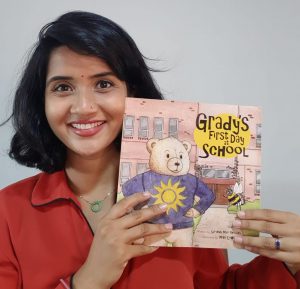
Many parents, teachers, tutors, and students believe that “mugging” (slang: pushing oneself to study for long hours) or drilling on assessment books is the way to go about learning. Mrs. Rejini Mogan begs to differ.
Mrs Mogan has been teaching children of different ages for about 10 years and has bountiful knowledge on what helps children learn best.
She taught in a primary school, then at an enrichment centre, and finally, kickstarting her own enrichment centre while being a private tutor with SmileTutor for about four years.
Many parents have recommended her and testified that her teaching methods are effective for their children, so we spoke to her to gain insights on what constitutes effective learning for a child.
What are teachers and tutors doing wrong?
Rigid approaches

Mrs Mogan believes that in order for learning to be effective, there needs to be flexibility in catering for the individual child’s learning speeds and styles.
However, many teachers and tutors tend to adopt a “cookie-cutter” and “one-size-fits-all” approach, which compartmentalises students. When a student is not able to learn immediately, they are labelled as “slow”, “not good enough”, which makes them feel inferior.
“There are many enrichment centres and good materials out there, good teaching methods… but the problem is that there is a mismatch between expectations and the child’s levels,” says Mrs. Mogan. “The child is overwhelmed; the child is flustered, and then there’s a big gap.”
Not giving consideration to their attention span
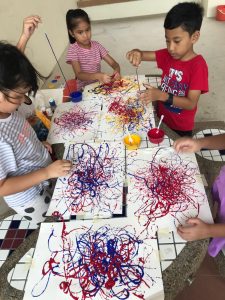
Mrs. Mogan cites research from Harvard University that the attention span of six-year-olds is 12-18 minutes, and for eight-year-olds, it’s 16-24 minutes.
“It’s very unnatural for a young child to sit for 30 minutes,” Mrs. Mogan comments. However, it is “a common industry practice”.
What should teachers and tutors do instead?
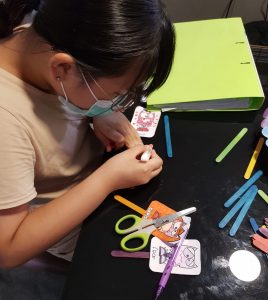
Mrs. Mogan recommends taking regular breaks after completing small milestones.
“When you find that it’s a little bit too much for a child, then break into a movement activity,” Mrs. Mogan recommends. “Let’s do some yoga poses, let’s play Simon Says, let’s do breathing exercises, get up on your feet.”
It is crucial for teachers to take conscious steps to ensure that learning is enjoyable for children.
“Observe the child and watch out for signs of fatigue, confusion, or stress,” says Mrs. Mogan. “This will give you a greater insight on how the child is faring.”
To build on interest, scaffold the concept or skill in an interesting or multi-sensory way.
As much as possible, show them how this concept is related to real-life and the world. Children will gain so much more motivation to learn.
How can parents play a part?
“Many of the social and emotional challenges that a child faces today is unfortunately due to how they have been parented or raised,” says Mrs. Mogan.
“Despite their best intentions, parents often enslave their children to the emotional inheritance that they received from their parents, which may not necessarily stem from a place of awareness.”
Structured play

Structured play activities are generally adult-led. A parent, teacher, or other trusted adult sets the tone for the play.
It is goal-oriented, involving following rules or instructions to reach a particular goal.
Popular structured play activities for children include following directions to assemble a toy or board games involving rules.
Unstructured play

Unstructured play, sometimes called free play, is creative and improvised with no set goal and unlimited possibilities.
Giving a child some materials without directing them on what they have to do will strengthen their ideation process. Encourage children to create their own characters, write their own scripts, and direct their own play.
“Children love to be creative, they love to take charge of their own learning,” says Mrs. Mogan.
Be nurturing
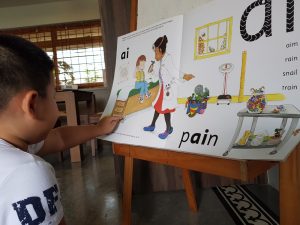
Children with nurturing parents tend to turn out confident and are able to speak their minds without holding back what they truly feel.
“When I teach them, it’s so much easier for me, because the communication is easy and fluid,” says Mrs. Mogan. “They lead and carve out the learning process.”
On the other hand, parents who use the traditional or top-down approach with their children will cause them to become scared, anxious, and have low self-esteem.
Have conversations with them instead of constantly quizzing them
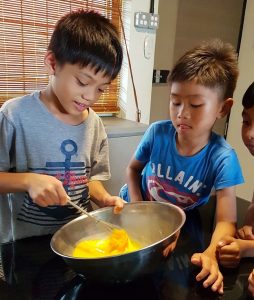
Even though assessments are dialled back in primary schools today, children are still assessed in school in the form of bite-sized or weighted assessments.
“They don’t need to be further assessed at home, which should be a conducive environment to build on relationships, shared experiences, and the crucial foundational skills much needed to be confident and competent,” says Mrs. Mogan.
Instead of demanding correct answers from your children all the time, ask them about how their day was and what they learned in school. Be interested in what they tell you.
“Parents today are very invested in their children’s education, but the irony is that they’re not spending enough time with the interaction bit,” Mrs. Mogan notes.
Conversations can be born from just about anything and everything. It helps a child make sense of the world he or she lives in, allowing them to grow to be comfortable with speaking up.
Rethink punishment

Mrs. Mogan warns parents from adopting punishment strategies that can backfire.
She recalls her childhood in which during her PSLE year, she was often assessed by her test grades to go to the park.
“The very thing that was so important for me to destress and self-regulate — the park, running around and cycling — [my father] took that away from me,” says Mrs. Mogan. “To my father back then, more study time equated to better performance for assessments.”
She also cites an example from another parent.
“I know of this father, who’s a teacher, who tells me that every time his son doesn’t do his homework, he would cancel his soccer training,” says Mrs. Mogan. “That’s a terrible thing to do to a child who loves soccer and who probably finds respite in soccer.”
Children need to maintain their hobbies in order to be motivated and happy.
“At the root of it, the child doesn’t understand, or the child finds it very challenging but is unable to say it,” says Mrs. Mogan. “They’re scared to disappoint, they’re scared to be any lesser.”
Instead of assuming punishments that will be counter-effective, find out why your children are not doing their homework. Is it too difficult for them?
If a child is having trouble acquiring a certain skill, understand more about the child’s energy levels and emotional needs. Have they had sufficient rest, something to eat, and time to do something they like? Is something bothering them?
When these areas are addressed, a child will be primed to learn effectively without resistance.
Conclusion

If there’s anything that you should take away from this article:
Teachers and tutors: Exercise flexibility. Every child is different and will require different approaches when it comes to learning.
Parents: Playtime can be more beneficial than drilling on assessment books. Help your child instead of punishing them, because punishments could do more harm to your child’s interest in learning.
These efforts can make a huge impact on children achieving long-term success in their linguistic skills.
Mrs. Mogan is a registered tutor with SmileTutor. Request a tutor with us today.
Inspired to become a tutor? Register with us!
